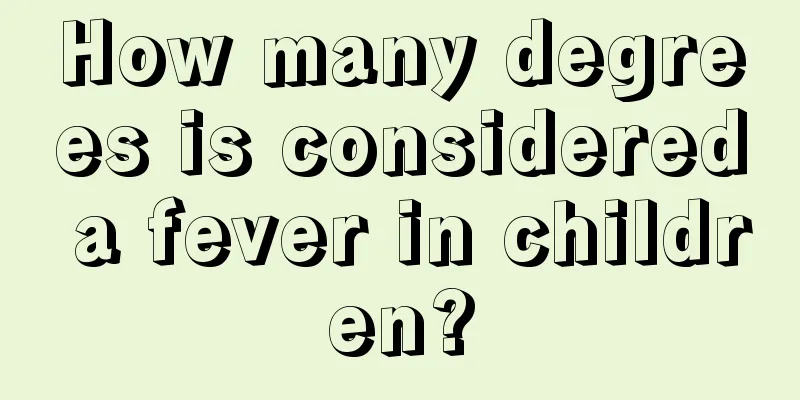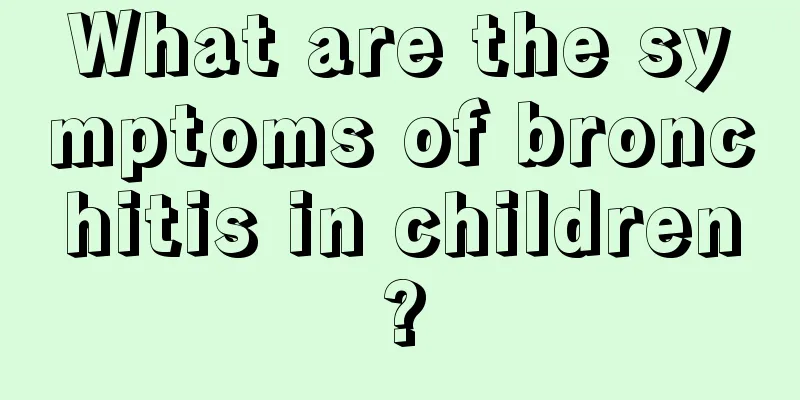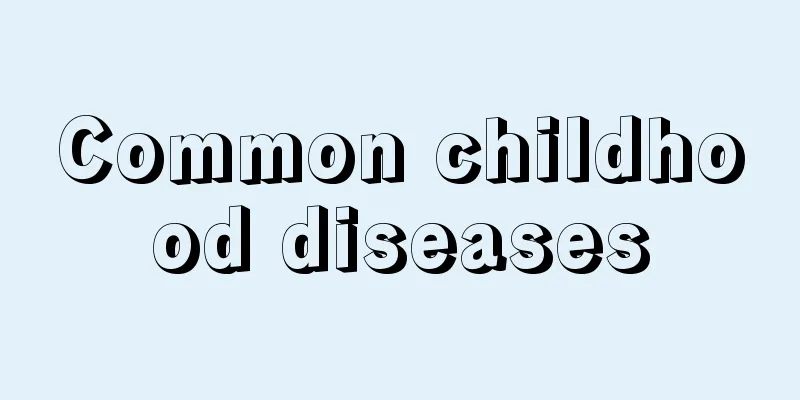Why does a 10-year-old child feel dizzy?

|
Children's physical health is directly related to the future of the family. Many parents obviously do not realize this, so when faced with abnormal physical symptoms of their children, they always take it lightly, resulting in their children suffering from very serious illnesses. In life, some children will feel dizzy, and more than once. In most cases clinically, this is a manifestation of anemia. What are the clinical manifestations of anemia in children? Anemia in children is divided into four degrees: mild, moderate, severe, and very severe according to the amount of hemoglobin and red blood cell count in peripheral blood. According to the mean corpuscular volume (MCV), mean corpuscular hemoglobin (MCH) and mean corpuscular hemoglobin concentration (MCHC), anemia is divided into four categories: macrocytic anemia, normocytic anemia, microcytic anemia and microcytic hypochromic anemia. According to the cause of the disease, anemia is divided into three categories: hemorrhagic, hemolytic and underproduction. Clinical manifestations 1. Nutritional iron deficiency anemia The disease can occur at any age, but is most common between 6 months and 2 years old. The onset is relatively hidden, and many children are diagnosed only when they visit the doctor for other diseases. (1) Generally, the skin and mucous membranes gradually become pale or yellow, which is most obvious on the lips, oral mucosa and nail beds. They are prone to fatigue, irritability, crying or lack of energy, lack of activity and loss of appetite. Older children may complain of dizziness, black spots in front of their eyes, tinnitus, etc. (2) Manifestations of hematopoietic organs: Due to the extra-bone marrow hematopoietic reaction, the liver, spleen, and lymph nodes are often slightly enlarged. The younger the age, the longer the course of the disease, and the more severe the anemia, the more obvious the hepatosplenomegaly will be, but the degree of enlargement rarely exceeds moderate. The lymph nodes are mildly enlarged and tough. (3) Other symptoms and signs may include ingrown nails, inflammation of the oral mucosa and anus, and atrophy of the tongue papillae due to epithelial damage. Digestive system symptoms often include loss of appetite, pica, and sometimes indigestion, vomiting or diarrhea. Respiration and pulse rate may compensatorily accelerate, and a systolic murmur may be heard in the precordial area. Severe anemia may cause heart enlargement and even heart failure. 2. Nutritional megaloblastic anemia It is more common in infants and young children aged 6 months to 2 years. Those who are often breastfed without adding complementary foods (especially those whose mothers have been vegetarians for a long time or have vitamin absorption disorders), those who have only eaten plant-based foods for a long time, or those who have been fed with goat's milk alone. A history of chronic diarrhea, or long-term use of methotrexate, phenobarbital and other drugs. The child's skin is sallow and he or she appears puffy or has a slightly swollen face. The hair is fine, yellow and sparse. Psychoneural symptoms may occur, which are not completely parallel to the degree of anemia. People with vitamin B12 deficiency will experience neurological symptoms and signs, such as slow reaction, less crying and less laughing, and delayed or even regression in intellectual and motor development. In severe cases, they may develop organic neurological lesions, such as irregular limb tremors and ankle clonus. Folic acid deficiency does not cause neurological symptoms, but may cause neuropsychiatric abnormalities such as irritability and anger. Children often suffer from loss of appetite, nausea, diarrhea, abdominal distension, glossitis, and may also have hepatosplenomegaly. 3. Hemolytic anemia Pallor and jaundice are prominent manifestations. (1) Acute hemolysis has an abrupt onset and is often accompanied by high fever, chills, nausea, vomiting, abdominal pain, back pain, hemoglobinuria or bilirubinuria. Severe cases may cause heart failure and acute renal failure. (2) Chronic hemolysis has a slow onset, a long course, and often intermittent attacks. During the course of chronic disease, "hemolytic crisis" is often induced by factors such as infection, fatigue or emotional tension. Anemia and jaundice suddenly worsen, accompanied by fever, chills, vomiting, and significant enlargement of the spleen with pain. "Aplastic crisis" may also occur during the course of the disease, which is manifested by temporary suppression of bone marrow hematopoietic function, mainly suppression of erythroid hematopoiesis, severe anemia, bleeding, and varying degrees of decrease in white blood cell counts and platelet counts. This crisis is related to parvovirus infection and is a self-limiting process that lasts for several days or resolves in 1 to 2 weeks. |
<<: Is it OK for children to eat rock candy?
>>: The harm of parents spoiling their children
Recommend
How to take care of a baby who has a fever and keeps crying
For most babies, crying is a very normal thing, b...
3 month old baby spitting up milk
A three-month-old baby has not yet fully develope...
What is the cause of the redness of the urethra of a baby boy?
Parents think that it is easier to take care of a...
The child is hot but not sweating
A baby must have a fever, but he does not necessa...
What to do if a child has rotten feet?
It is not uncommon for children in some families ...
What should I do if my child has a fever at night?
Every child is a person who makes parents worry. ...
What to do if the baby girl's urethra is red
If there is a baby girl at home, parents must tak...
What is the treatment for hernia in children?
Many parents generally do not want to undergo sur...
Why does a one-month-old baby fart smell bad?
What worries people the most now is the newborn b...
Symptoms of infants not adapting to milk powder
After frequent incidents with domestic milk powde...
What to do if your baby keeps catching a cold
Whether it is an adult or a child, it is very eas...
What to do if your toddler is a picky eater
Children nowadays are basically spoiled by their ...
The child has not pooped for three days
The frequency of a child's bowel movements is...
The child has a sound in the trachea when breathing
If a child makes a sound in the trachea when brea...
What symptoms can determine that a child has worms?
Ratworms are living organisms that appear in the ...









